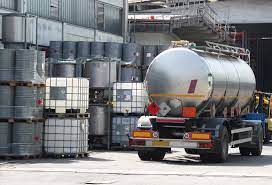Accident Investigation Training & Unsafe Act Unsafe Condition Training

Logistics Safety Management Training: Ensuring a Safe and Efficient Supply Chain
October 22, 2024
Dust Explosion Hazards & Controls
October 24, 2024Introduction
Workplace safety is paramount in any industry, and TheSafety Master is at the forefront of providing comprehensive training solutions to ensure a safe working environment. Two critical aspects of their training programs are Accident Investigation Training and Unsafe Act Unsafe Condition Training. These trainings are designed to enhance the safety culture within organizations and mitigate the risks associated with workplace incidents. This blog delves into the significance of these training programs, their benefits, and how they integrate with broader safety practices such as Process Safety Management and Fire Audits.
Understanding Accident Investigation Training
Accident Investigation Training is essential for identifying the root causes of workplace incidents and preventing future occurrences. This training equips employees and safety professionals with the skills needed to conduct thorough investigations into accidents, near misses, and unsafe conditions.
Key Components of Accident Investigation Training:
- Incident Analysis Techniques: Learning methods such as root cause analysis (RCA), failure mode and effects analysis (FMEA), and the five whys technique to systematically investigate incidents.
- Data Collection: Training on how to gather accurate data through interviews, site inspections, and review of records.
- Reporting and Documentation: Developing skills to document findings clearly and concisely to facilitate corrective actions.
- Corrective and Preventive Actions: Formulating effective strategies to address the identified root causes and prevent recurrence.
Benefits of Accident Investigation Training
- Enhanced Safety Culture: Fosters a proactive approach to safety, encouraging employees to report incidents and near misses without fear of retribution.
- Reduced Incidents: By understanding the root causes of accidents, organizations can implement targeted measures to prevent future incidents.
- Compliance with Regulations: Helps organizations meet legal and regulatory requirements related to workplace safety.
- Cost Savings: Reduces costs associated with workplace accidents, including medical expenses, downtime, and legal fees.
Unsafe Act Unsafe Condition Training
Unsafe Act Unsafe Condition Training focuses on identifying and mitigating behaviors and conditions that can lead to workplace accidents. This training emphasizes the role of human behavior and environmental factors in accident prevention.
Key Components of Unsafe Act Unsafe Condition Training:
- Behavioral Safety: Understanding how human behavior contributes to unsafe acts and developing strategies to promote safe behaviors.
- Hazard Identification: Training on recognizing unsafe conditions in the workplace, such as equipment malfunctions, poor housekeeping, and inadequate safety measures.
- Risk Assessment: Learning to assess the risk associated with identified hazards and prioritizing corrective actions.
- Safety Communication: Developing skills to communicate safety concerns effectively and foster a culture of safety awareness.
Benefits of Unsafe Act Unsafe Condition Training
- Proactive Hazard Mitigation: Encourages early identification and correction of unsafe conditions and behaviors, reducing the likelihood of accidents.
- Improved Employee Engagement: Engages employees in safety practices, promoting a sense of responsibility and ownership for workplace safety.
- Enhanced Awareness: Increases awareness of potential hazards and the importance of safe practices, leading to a safer work environment.
- Compliance and Best Practices: Ensures adherence to industry standards and best practices for workplace safety.
Integration with Process Safety Management
Process Safety Management (PSM) is a regulatory standard aimed at preventing the release of hazardous chemicals and ensuring safe operations in industries handling such substances. Both Accident Investigation Training and Unsafe Act Unsafe Condition Training are integral to effective PSM.
Role of Accident Investigation Training in PSM:
- Incident Analysis: Identifying root causes of process-related incidents to prevent future occurrences.
- Continuous Improvement: Using findings from investigations to improve safety procedures and PSM programs.
- Regulatory Compliance: Ensuring thorough investigations and documentation as required by PSM regulations.
Role of Unsafe Act Unsafe Condition Training in PSM:
- Behavioral Safety: Promoting safe behaviors among employees handling hazardous chemicals.
- Hazard Identification: Recognizing unsafe conditions that could lead to chemical releases or other process-related incidents.
- Risk Reduction: Implementing corrective actions to mitigate identified risks, enhancing overall process safety.
Importance of Fire Audits
Fire Audits are essential for assessing fire risks and ensuring that adequate fire protection measures are in place. These audits are critical for maintaining a safe working environment and are closely related to both Accident Investigation and Unsafe Act Unsafe Condition Training.
Role of Fire Audits:
- Risk Assessment: Identifying fire hazards and assessing the adequacy of existing fire protection measures.
- Compliance: Ensuring compliance with fire safety regulations and standards.
- Preparedness: Evaluating the effectiveness of emergency response plans and fire safety training.
- Continuous Improvement: Using audit findings to enhance fire safety measures and prevent potential fire incidents.
Process Safety Management Training
Process Safety Management Training is crucial for organizations dealing with hazardous chemicals and processes. This training provides employees with the knowledge and skills needed to manage process safety effectively.
Key Components of Process Safety Management Training:
- Hazard Analysis: Training on techniques such as HAZOP (Hazard and Operability Study) and FMEA to identify process-related hazards.
- Safety Procedures: Developing and implementing safety procedures for handling hazardous chemicals and operating critical equipment.
- Emergency Response: Training on emergency response planning and execution to mitigate the impact of process-related incidents.
- Regulatory Compliance: Ensuring compliance with PSM regulations and standards to avoid legal penalties and enhance safety.
Conclusion
Accident Investigation Training and Unsafe Act Unsafe Condition Training offered by TheSafety Master are vital for promoting a safe and healthy workplace. These training programs equip employees with the skills needed to identify, investigate, and mitigate safety hazards effectively. By integrating these trainings with broader safety practices such as Process Safety Management and Fire Audits, organizations can achieve a comprehensive approach to workplace safety.
The importance of a proactive safety culture cannot be overstated. Investing in thorough training programs not only enhances safety but also ensures compliance with regulations and reduces costs associated with workplace accidents. TheSafety Master’s expertise in safety training makes them a reliable partner for organizations aiming to achieve the highest safety standards.
In conclusion, embracing a holistic approach to safety through Accident Investigation Training, Unsafe Act Unsafe Condition Training, Process Safety Management, and Fire Audits is essential for creating a safe and resilient workplace. By doing so, organizations can protect their employees, assets, and reputation while fostering a culture of continuous improvement and safety excellence.




